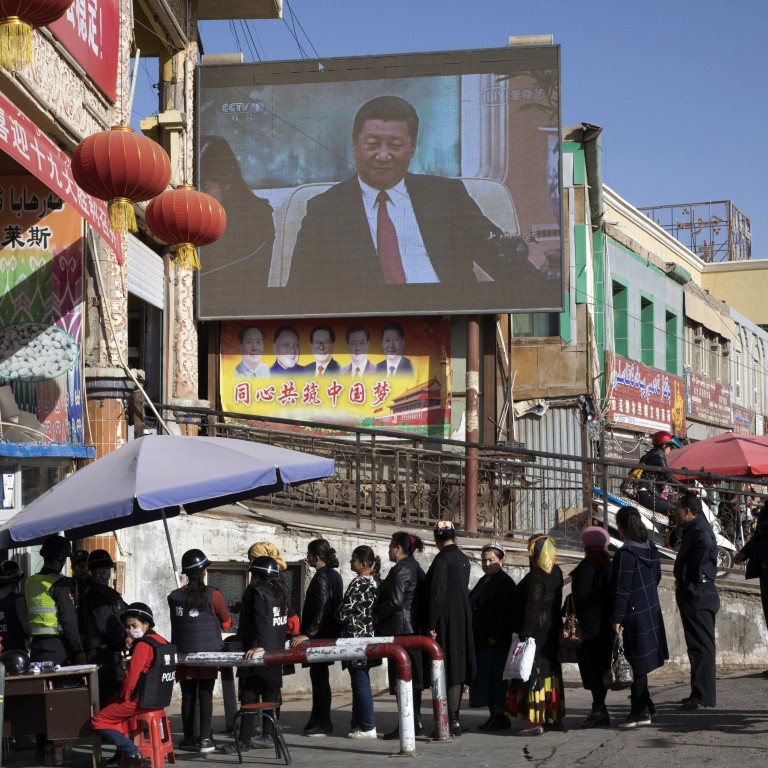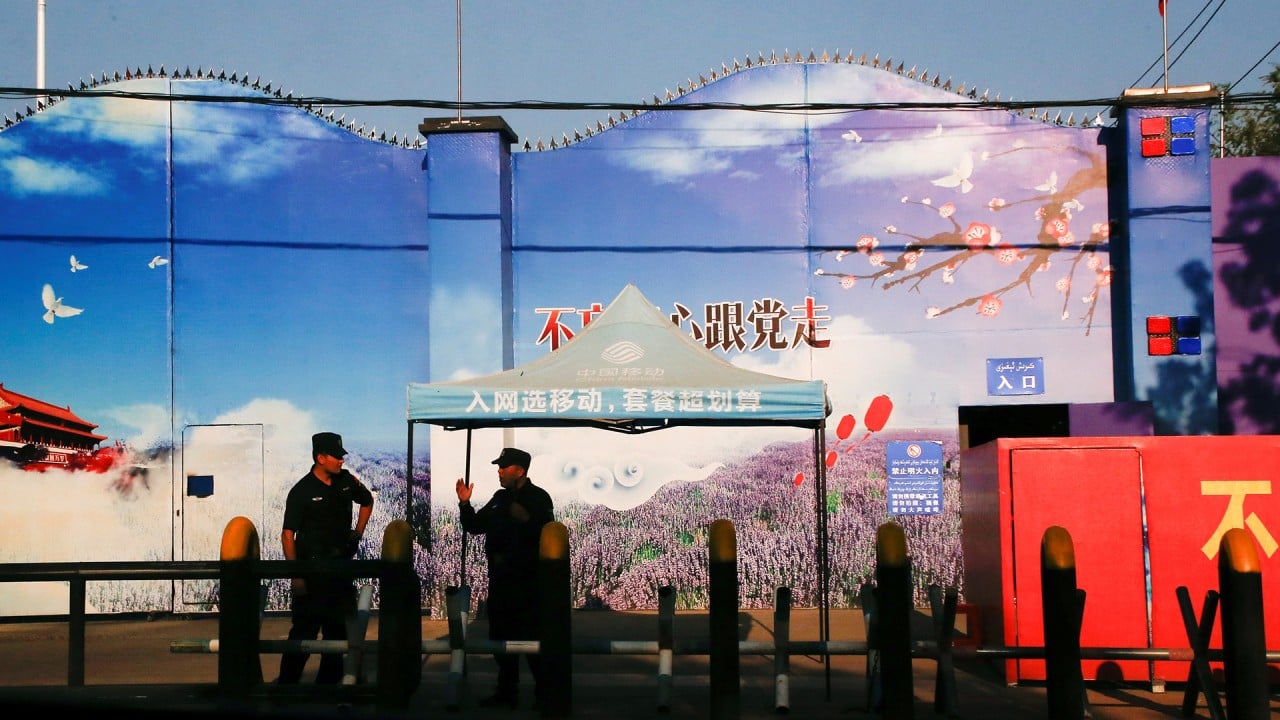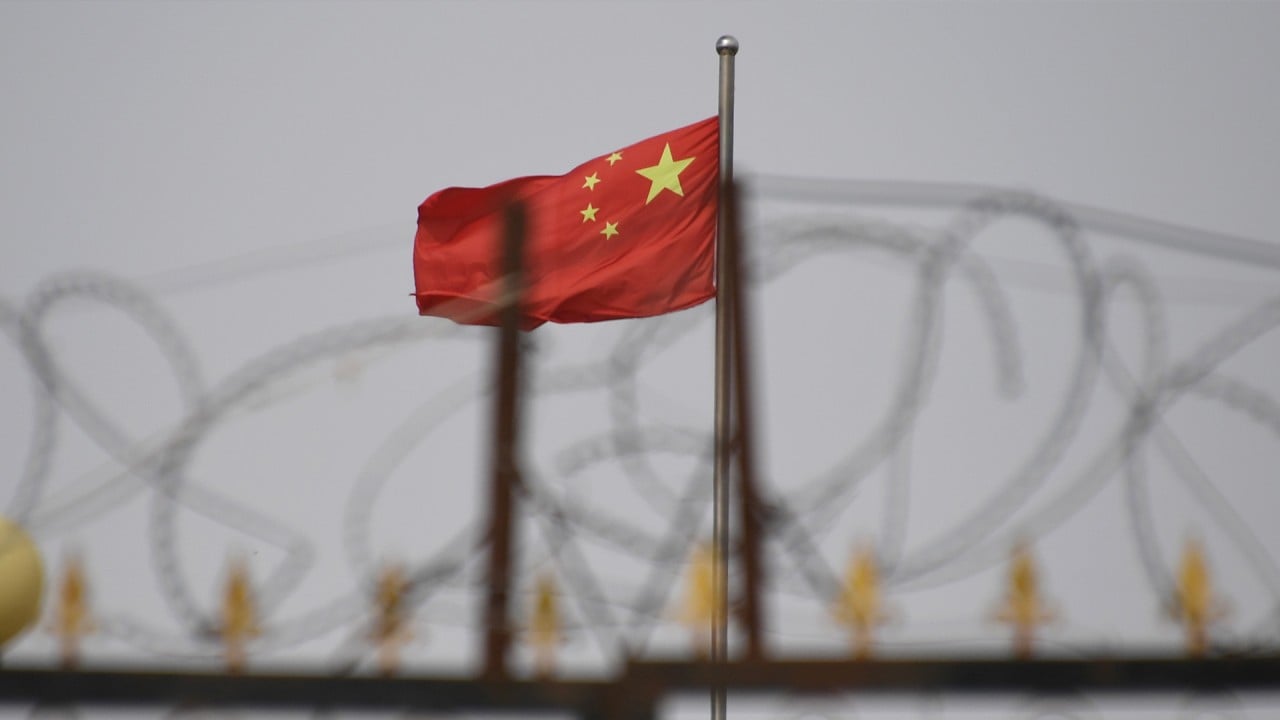
China’s anti-sanctions law: how Beijing borrowed a page from the EU’s playbook to counter the West
- Beijing appears to have taken inspiration from the European Union’s (EU) decades-old blocking statute when drafting its own anti-sanctions law
- However, experts say China’s legislation is more ambiguous and goes further by allowing action against ‘unjustifiable’ restrictions on its entities
This is the fifth in a series of stories looking at China’s Xinjiang province and how the far-western region is coping economically under a series of US sanctions over alleged human rights violations and the widespread use of forced labour.
Dozens of clients, mostly from the United States, were calling to ask how the new regulation might affect their business in industries ranging from aerospace to information technology.
Under the law, Chinese authorities can take countermeasures against entities that impose sanctions against the country and hold businesses that refuse to help liable.
Even if the Chinese never invoke their new blocking rules, their existence creates new risks for multinational firms doing business in China
“They asked us to review the compliance manual, and some in sensitive industries also asked us to review their [supply chain] contracts,” recalled Gilardino, who leads the Shanghai office of Horizons Corporate Advisory, which helps foreign businesses integrate into the local market.
“We didn’t receive even one phone call from European clients,” said the veteran adviser, who speaks fluent Chinese and has deep knowledge of local business rules. “It’s more related to state-to-state relationships and Anglo-Saxon countries.”
Lester Ross, a China partner at law firm WilmerHale, was also fielding a flurry of calls from anxious clients.
“Along with other actions by the Chinese government, it is making businesses in the US, but not necessarily only in the US, more uncomfortable because it threatens to impair their ability to decide with whom they do business,” he said.
US sanctions on China will continue but Beijing ‘unlikely to escalate’ amid decoupling fears
In drafting the legislation, policymakers in Beijing appear to have taken note of the European Union’s (EU) decades-old blocking statute of extraterritorial application of laws adopted by third countries.
Introduced in 1996 in response to US sanctions on Cuba, the EU legislation protects individuals and companies from foreign laws.

02:27
US declares China has committed genocide in its treatment of Uygurs in Xinjiang
“China is now borrowing a page from the European anti-sanctions playbook,” said Mary Lovely and Jeffrey Schott, two senior fellows with the Washington-based Peterson Institute for International Economics (PIIE), in a report published in June.
The new rules are essentially “European measures with Chinese characteristics”, the report added.
Both laws allow affected entities to claim compensation from parties that harm them by complying with foreign measures, introduce civil penalties for entities that obey third-party laws and provide a mechanism for case-by-case compliance review.
However, Chinese authorities have gone a step further by allowing action against foreign laws or measures where application “unjustifiably” restricts its nationals or businesses.
US, EU, UK, Canada launch sanctions blitz against Chinese officials; Beijing hits back
“Wording of the Chinese blocking rules is so elastic that almost any other foreign sanction affecting the economic interests of Chinese firms could be branded ‘unjustified’,” the PIIE report said.
“The new rules essentially force companies to choose between access to the Chinese market and access to the US market, with penalties possible in either direction. Even if the Chinese never invoke their new blocking rules, their existence creates new risks for multinational firms doing business in China.”
King & Wood Mallesons, an international law firm headquartered in Hong Kong, found “distinct differences” from the EU statute, such as the ability to strike-back against parties in the sanctioning country.
“It is quite clear that the Anti-Foreign Sanctions Law focuses on ‘counteracting’ rather than ‘blocking’, and the contents thereof are in obvious equivalence with overseas restrictive measures against China,” it said in a note released last month.
In China, the law has been portrayed as crucial to defend the country against foreign interference, most notably US long-arm jurisdiction.
“This new law is another legal tool to deal with discriminatory and restrictive foreign measures,” said a report led by Zhou Yong, a trade lawyer with Beijing-based law firm JunHe, in July.
The sanctions ratcheted up tensions between China and the US, and raised further questions about a possible road map for de-escalation in a conflict that encompasses trade, tech and geopolitical competition.

03:36
Beijing hits back at Western sanctions against China’s alleged treatment of Uygur Muslims
Wang Yiwei, director of the Centre for European Studies at Renmin University of China, said the country was a new participant when it came to creating international rule, and its sanctions were not even close to matching the US in magnitude.
“It’s not on an equal footing because the US is a hegemonic state and has lots of allies worldwide,” he said, adding he supported the creation of anti-sanctions tools, but warned against excessive use.
China remains one of the world’s biggest destinations for foreign direct investment, which increased 25.5 per cent from a year earlier to 672 billion yuan (US$103.9 billion) in the first seven months of 2021, according to data from the Ministry of Commerce.
How the anti-sanctions law will affect future investment is unclear, but Steve Dickinson, a lawyer at Seattle-based law firm Harris Bricken, said big companies with a strong China presence will ultimately cast a vote of confidence with how and where they choose to spend their money.
But he added most of his clients who had contract manufacturing done in China cared more about market entry, US trade war tariffs and intellectual property protection.
China has the right to have its own anti-foreign sanction law … to protect its investments and citizens abroad
Following postponement of the legislation, the British Chamber of Commerce in China said a transparent and globally connected business environment is critical if Hong Kong is to continue as a finance and trade hub.
“The chamber encourages the government to ensure that legal mechanisms around the anti-foreign sanctions law are as transparent as possible, and to provide multinational companies with the information and certainty they need to ensure compliance across their global operations,” it said.
Gilardino, who first set foot on Chinese soil 26 years ago, said it was understandable Beijing wanted its own legal mechanisms to fight back against foreign laws it deemed harmful to national interests.
The new legislation has also arrived during a period of strong Chinese patriotism. Gilardino said nationalist sentiment today is much stronger than in late 1990s when a book China Can Say No, a collection of essays imploring the country to stand up against Western attempts to contain it, was taking the country by storm.
“China has the right to have its own anti-foreign sanction law … to protect its investments and citizens abroad,” he said.
Still, Gilardino saw little impact on foreign businesses that had purely commercial interests.
“I really don’t see the need for companies to enter into political discussions,” he added.







